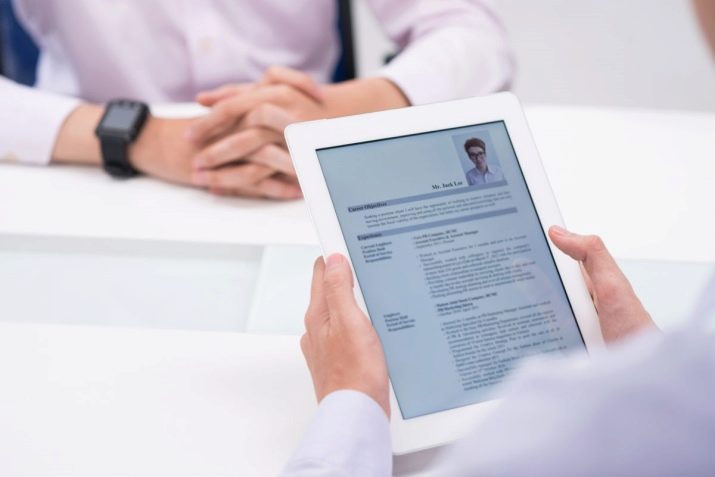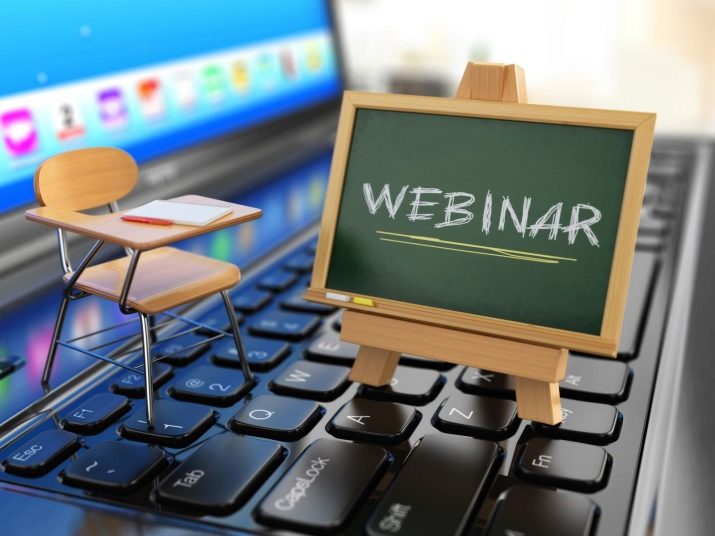In search of a new job, the applicant draws up a resume, this helps to prepare for the second stage of employment - an interview. Recruiters often like to ask about the strengths and weaknesses of the applicant. How to choose the right answers, which you can and cannot talk with interviewers about - this will be our talk today.

Why ask this question?
If such a question is initially regarded by you as provocative, then you urgently need to reconsider this point of view, because for the employer this is a completely logical question. Indeed, the main task at the interview is to find a candidate for the position that meets the specified requirements. And the easiest way to do this is to obtain information about the positive and negative qualities of the candidate. During the conversation, the recruiter will be able to assess how honest the respondent is, open to dialogue, adequate in self-esteem, able to analyze his own behavior, confident in himself, understands what personal qualities are important for the proposed work and will affect it, can quickly navigate the situation.
But most of all, he is interested in the applicant’s professional skills, his experience, achievements and awards. If this is the first job, it is all the more important to convince the employer of their own motivation, the desire to gain this experience in such a strong company.
It is equally important to point out your communicative qualities, the ability to build relationships with both superiors and other colleagues.

Rules for Introspection
To correctly and honestly answer questions, you need to properly prepare for the interview. Preparation consists in conducting introspection. Very often, questions of employment profiles are a detailed questionnaire that helps to evaluate their own opportunities for working in this company. If acquaintance with the employer occurs at the time of the interview, then it is worthwhile to determine in advance whether your type of character is suitable for the proposed job. There are 5 types of professions:
- person - person (e.g. teacher, physician, guide);
- man - nature (agronomist, florist, veterinarian);
- man - equipment (engineer, car mechanic, constructor);
- man - a sign (programmer, financier, translator);
- man - an artistic image (restorer, performer, singer).
To make your work a favorite, you should heed the advice of psychologists and choose it according to your type. At the same time, it is necessary to find out what qualities a candidate should possess (perseverance, high stress resistance, and so on). Physical health is also important. After all, a fracture of a finger on a hand is not important for an accountant, but it is very important for a surgeon or pianist.

Identification of deficiencies
For introspection, set aside time when no one will interfere. Arm yourself with paper and pen. Write down your positive qualities on one half of the sheet, and negative on the other. Do not forget that you carry out this work for yourself, so be sincere with yourself. If you understand how to fix the disadvantages, check here - this will help in the interview. Every 2-3 months, adjust the list by analyzing how it changes.
For such an analysis, it is better to have a separate electronic or paper document. This can be a powerful incentive for self-improvement. But the important point in this work is not only self-analysis, but also the understanding that the vacancy you are applying for may not at all correspond to your capabilities and desires. Perhaps you should look for other options, and not spoil your life with an unloved job.
From the whole resulting list, select the 7 strongest and the same weakest characteristics. Think about what you should talk about when meeting with a recruiter, but what is better not necessary.

Assessment of benefits
To talk about your strengths, you need to consider that they are evaluated in three ways.
- Professional knowledge and general outlook (not just knowledge of accounting entries, but the ability to work in Excel, 1C; the desire to learn about changes in legislation; knowledge of foreign languages and so on).
- Experience with colleagues and clients, analytical skills in predicting the situation and resolving issues, the ability to plan their own work and the work of subordinates.
- Personal qualities that are interesting specifically for the chosen profession: punctuality for the stewardess, creativity for the artist, the ability to work in a team for a football player. On the whole, enthusiasm, honesty, discipline, a creative approach to business, decisiveness, reliability, dedication, patience, and respect for others are considered positive personal qualities.

Each person has weaknesses, this is normal. The more thoroughly the work is done to identify shortcomings before the interview, the easier it will be to get around the pitfalls at a meeting with the interviewer. Indeed, among the shortcomings are those that can affect the work (poor eyesight for the watchmaker), or those that only help (nightlife for the bartender of a nightclub).
It is worthwhile to carefully read the requirements for candidates in order to turn their shortcomings into advantages.
What can be called negative qualities?
The most common request of a potential employer is name three negative qualities. Professional agents conducting such interviews quite often warn: do not lie, saying that you have no shortcomings. This indicates an overestimated self-esteem and lack of self-criticism. With such candidates part without regret.
A conversation will be more productive if you turn your minuses into pluses. For this, when applying for a job, it is worth voicing a list that is relevant to future work, but not essential for the selected position. For example, a poor knowledge of mathematics does not hurt to pick up a ticket for a client and tell her price for 10 days, because there is a calculator at hand.
It’s not worth talking about clearly positive qualities as negative ones: “I sit around at work for a long time because I want to do everything on time.” Especially since mention of their own workaholism is poorly perceived by recruitment managers.
If you try to name a long list of your shortcomings, then this will be perceived not as self-criticism, but as stupidity.

It’s quite possible to turn your weaknesses into advantages if you propose an alternative: “I’m afraid to fly by plane, but am ready to travel on business trips by car or train” or “I don’t know how to work in this program, but I’m ready to study.”
But there are bad examples that in no case should be mentioned during the interview.
- “I changed jobs several times because all men constantly fall in love with me.”
- “I had to change jobs, because my bosses didn’t value me, and my colleagues constantly found fault with me.”
- “My sick mom needs expensive medication, so I'm looking for a well-paid job.”
- “In the morning I take my children to kindergarten, school, university, and my wife to work in the other end of the city, so I can be late to my office.”


Even if this is so, then you just do not need to mention it in this perspective. A conversation will be much more productive if we talk about how to deal with shortcomings. For example: "I am quick-tempered, but learning to control my emotions, attend trainings on this topic." It’s completely not worth mentioning those qualities that have nothing to do with potential work: a love of knitting or cooking, if you are applying for the position of a nurse.
First time job seekers the main drawback is the lack of experience. It is very important to indicate your own willingness to study, attend courses, participate in webinars in order to be a worthy employee.
It is worth noting that the lack of experience will help to get used to new conditions faster, without comparing with previous organizations.

Thus, one can list the following own disadvantages:
- pedantry;
- increased emotionality;
- lack of experience in general or in a similar company;
- reliability;
- poor stress tolerance (when installed in a library, for example);
- self-digging;
- lack of experience with office equipment (when the device is not on the profile);
- excessive straightforwardness.


Do not call:
- laziness;
- non-punctuality;
- fear of new people (when choosing professions such as "person-person");
- fear of responsibility;
- desire to get a big salary;
- love of reading romantic literature and so on.
In addition, you should not answer in monosyllables. Explain what you are doing to correct the situation. Do not argue with the interviewer. Argument your answers in a calm voice, kindly.


What to say about the positive features?
In preparation for the interview, select from the list of positive qualities the most significant for the proposed job (at least seven). Rank them and select 3-5 of the most important. Be sure to prepare examples that will confirm your merits. For example, the innovation innovation that you proposed saved a lot of money for the enterprise. If the example is documented (letter, newspaper, order), then this will be a clear plus in your portfolio.
It's hard to talk about yourself without idealizing but the story must be believable. The one who sits opposite you is not the first time communicating with applicants and is able to distinguish embellishment from a real picture.
Tell only about the qualities that are important for the chosen position (the management of the construction of your own home will indicate your organizational skills necessary for the foreman).

Call not just good qualities (hard work, perseverance), but confirm them with the facts of your biography: “I participated in the“ Teacher of the Year ”competition twice, because for the first time I took a low place, but thanks to my own perseverance, I won the competition for the second time. It is here that it is appropriate to talk about one’s own awards, titles, academic degrees and won grants. Whenever possible You can demonstrate your own work - layouts, embroidery, drawings, models.
Experienced HR managers will very easily determine a lie, so any answer to a question must be true. And do not indicate all the positive qualities, because at each interview the recruiter sees a stress-resistant initiative workaholic in front of him, able to work in multitasking mode. Are you sure that this is exactly what will be needed to work on the conveyor line?
Before the interview, you should rehearse your story in order to avoid unnecessary information, parasitic words, nervous movements, too high a voice timbre. But still it’s important to remain natural and sincere. And then the cherished dream to get a good position will come true.

You will learn how to talk about your weaknesses in an interview in the video below.










